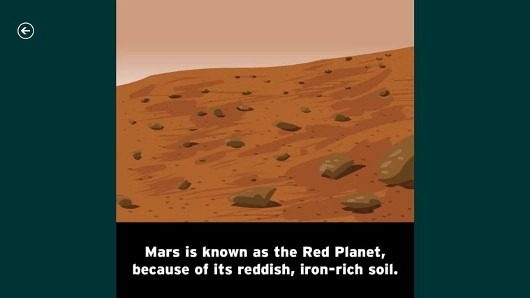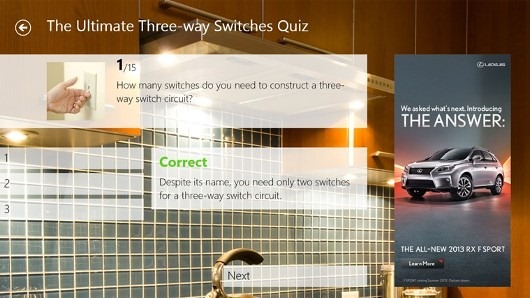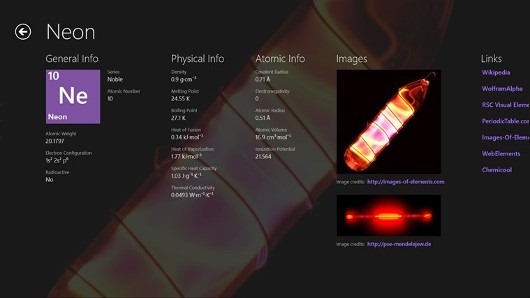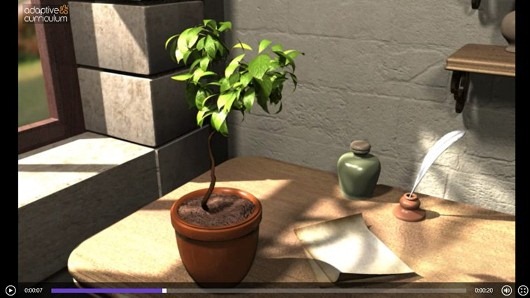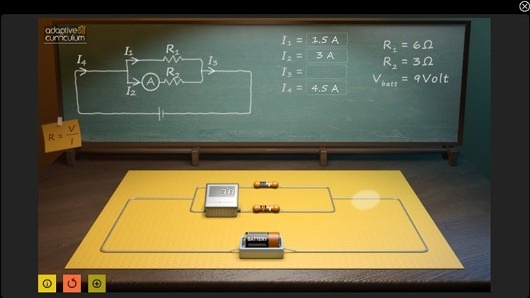My fellow bloggers were a bit peeved when I posted about cooking apps. “I was going to write about cooking apps!” said everyone.
But when I mentioned that I was going to do a roundup of educational apps, there wasn’t a peep. What’s going on here? Could it be that Tatsuo, Amy, and the rest of them actually hate knowledge? Are their minds not the fine instruments of inquiry that mine is? I don’t know. I’m just asking questions here.
And questions are what these apps are all about. How does photosynthesis work? What’s the difference between direct current and alternating current? How do you say, “My co-workers don’t seem to be inviting me to lunch anymore” in French?
My journey of discovery has taken me to the far ends of the Windows Store, and I’ve returned to offer for your consideration the following apps.
The name is a bit unwieldy, but the concept is dead simple: Watch little animated movies and then take quizzes on what you just saw. Subjects are wide-ranging, and include history, science, and the arts. What makes this app so cool are the movies themselves, which are bright, sharp little cartoons in the style of an animated Nick Jr. series, and usually feature a robot. The targeted age group for BrainPOP Featured Movie seems to be in the tween range, but I’d be lying if I said I didn’t learn a lot myself.
How Stuff Works, leveraging content from the website of the same name, is a wonderful mess, a scattershot smorgasbord of information on random topics. It’s not really a reference resource so much as a means to explore in a completely free-form way. The topics covered are almost absurdly diverse—I just watched a video on how to talk like a sailor and another one on cult music weirdo Harry Partch—but they’re tied together by the playful spirit of the creators of all this content. They are a talented bunch indeed, and their curiosity about the world is infectious.
Periodic Table is pretty much the polar opposite of How Stuff Works. It’s basic, straightforward, and focused on one thing. But among the many periodic table apps in the Windows Store, this one distinguishes itself with its nifty interface and splashy graphics that show what each element actually looks like. It’s great for both the student and anyone who want a quick refresher.
I’ve been trying to pick up a little Français in advance of a trip to Paris with my sweetheart. I’ve found FRENCH – SPEAKit.tv to be pretty much perfect for my purposes. The assumption here is that you know nothing. It’s a safe assumption in my case, but anyone with even a minimal grasp of French may be impatient with videos that start at the oui and non level and explain every little thing. Not me. I’m slow and need the extra reinforcement. I particularly appreciate seeing vocabulary words displayed on the screen and pronounced at the same time. And after a few lessons, I feel a lot more comfortable with French vowels and basic expressions for getting around.
Introduction to Photosynthesis
When this app says it’s going to introduce you to photosynthesis, it’s very serious. If you go through the whole series of exercises in Introduction to Photosynthesis, you will actually understand how photosynthesis works. While this does involve some tough love—including an “Am I ready?” quiz before you even get started—the exercises themselves are engaging and quick moving. You can finish the whole thing in a couple of hours and end up with a deeper appreciation of the process that makes all life possible.
Physics: Series and Parallel Circuits
Physics: Series and Parallel Circuits is another app from Adaptive Curriculum, the publisher of Introduction to Photosynthesis, and it follows the same basic format: a quiz to test your readiness followed by exercises that pack in a lot of information with a deft combination of text and interactive graphics. But I guess I didn’t pay as much attention in physics class as I did in biology, because I had a LOT more trouble with circuits than I did with photosynthesis. I still recommend the app for anyone who has a slightly better grasp of the basics of electricity than I do. Which probably includes everyone.
That’s it for this time. I’m off to impress my co-workers with my knowledge of photosynthesis. Oh, and please let us know if you’ve learned anything with an app from the Windows Store. Au revoir!
David S.

